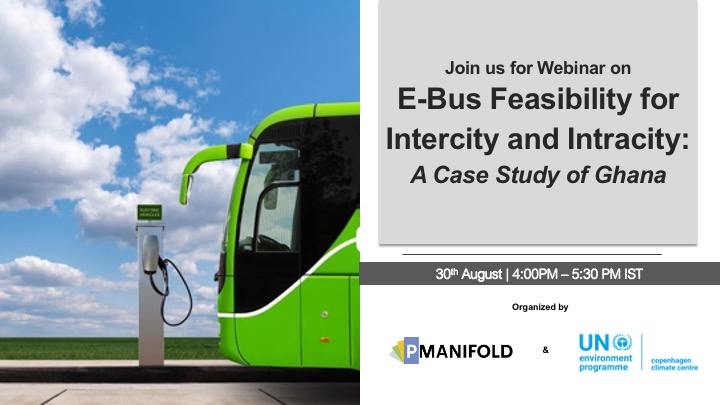Many African countries, including Ghana, Kenya, South Africa, Morocco, Nigeria, Tunisia, Uganda, Zimbabwe, and others are evaluating the technical feasibility and planning for the deployment of the e-Bus. From among them, Ghana’s stakeholders have taken the initiative to share the intracity and intercity e-bus market feasibility study carried out by pManifold and UNEP-CCC in collaboration with University of Ghana, outlining the challenges and possible mitigation measures in planning, procurement, commissioning and operations of e-buses.
Thus, in an effort to support early success and learning related to e-bus adoption in other developing countries, this webinar will include discussions centered on the following:
1. Tendering, contracting, procurement, and financing: How to address country-specific needs in tenders & contracts and how to make e-Bus adoption more bankable by modifying certain clauses, structures, and timelines, etc?
2. Depot and route selection and operations: How to better understand depot and route selection to minimize cost and improve operational performance?
3. Charging infrastructure planning and electricity supply: As the ecosystem adds EV loads to the grid, how can distribution companies, operators, equipment suppliers, and government actors work together to develop charging standards and plans for charging infrastructure and electric grid upgrades?
4. Products and supply chain: How can the planning process emphasize long-term fleet conversions and demand creation that OEMs require to make large-scale investments in manufacturing capacity?
5. Capacity building: How can training programs and resources support officials with their transition to a new technology and business models?


